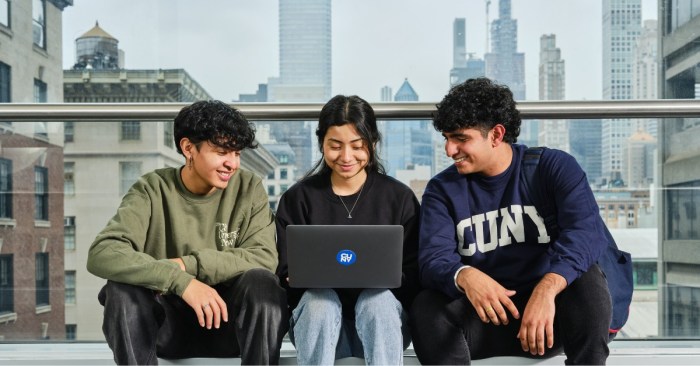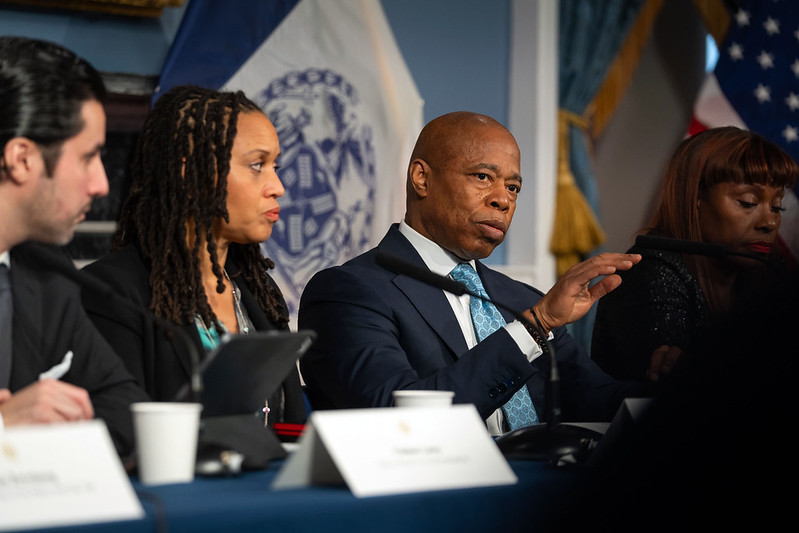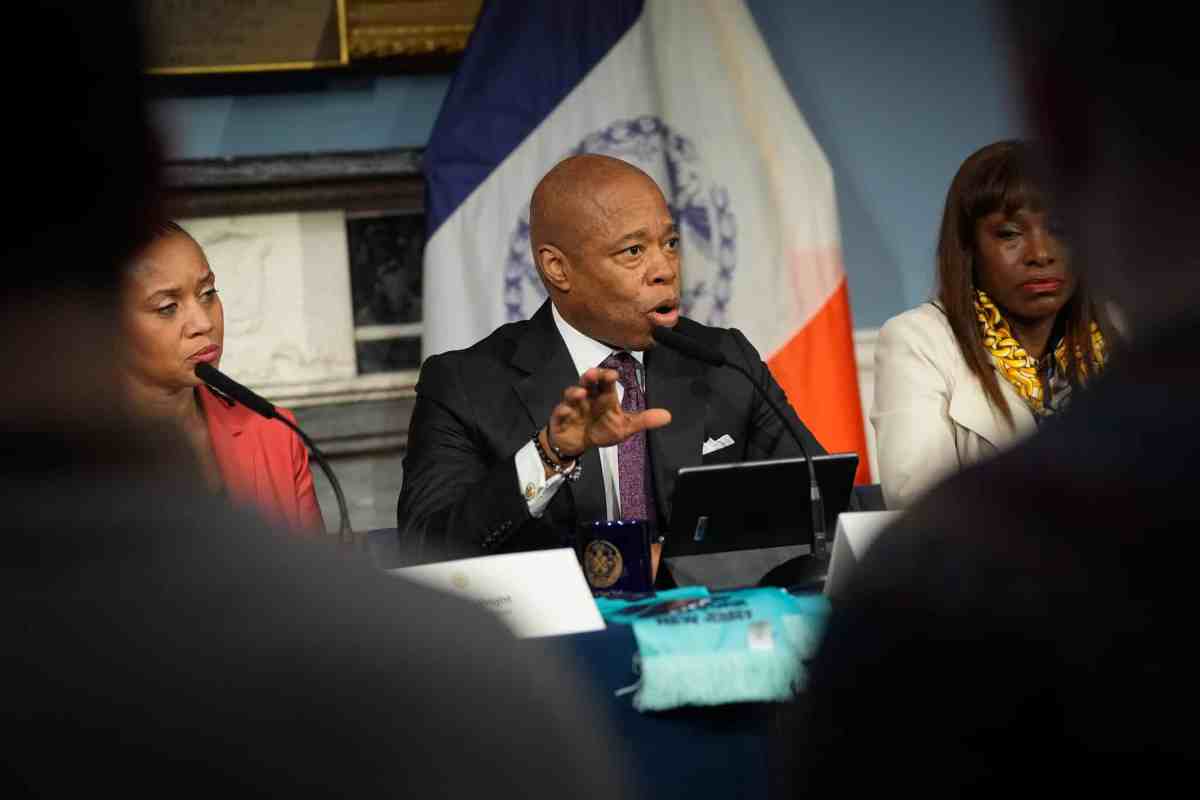By Prem Calvin Prashad
South Asians have long assailed the post-9/11 system of surveillance and profiling that has left many of the Muslims in the borough especially wary of their thoughts and actions in the wake of pervasive surveillance.
In the aftermath of protests in Ferguson, as well as outrage over the Eric Garner decision, thousands of New Yorkers joined protests demanding that the police and justice system recognize that “Black Lives Matter.” Many African Americans feel that their lives as well as the lives of their children are considered forfeit in interactions with law enforcement.
Desis Rising Up and Moving, a South Asian economic, civil and immigrant rights organization based in Jackson Heights, has long railed against heavy policing and surveillance in immigrant communities and has been active both in the larger police protest movements, as well as protests here in Queens.
DRUM Acting Executive Director Fahd Ahmed asserts that solidarity with the black community is necessary for a holistic approach to equality.
“As immigrant communities, we stand on the shoulders of black communities and their struggle for civil rights,” Ahmed said. “The gains made by the civil rights movement enabled changes that reopened Asian immigration to the United States.”
Over-policing heavily affects certain professions. In particular, Ahmed notes that the prevalence of ticketing affects cab drivers. Anecdotal testimony collected by the organization notes that cab drivers, receive four or five frivolous tickets a month, sometimes two or three tickets per traffic stop, with the assurance from officers that they would be able have the tickets thrown out in court. However, as Ahmed notes, this presents a dilemma for cab drivers, in that they lose fares for the time spent challenging tickets in court.
“Judges laugh off these tickets when they go to court, but by then, the driver has lost a day of work,” said Ahmed.
Street vendors, too, complain of arbitrary policing. Though the sale of some religious items, such as rosaries are exempted from ticketing, vendors selling items of religious significance, such as oils, perfumes and incense are often ticketed by police, despite falling within the exception. This contributes to a perception that neighborhoods, such as Jackson Heights are subject to indiscriminate policing.
“I think Broken Windows policing is very much at the core of over-policing,” Ahmed said.
Ahmed notes skepticism with the architect of Broken Windows, current police commissioner William Bratton.
“We’ve seen a change in tactics, but we wouldn’t say it’s for the better,” he said. “We are still waiting for substantive change.”
A critical aspect of the “broken windows theory” is strong community engagement to give residents a sense of a stake in the community. However, as Ahmed notes of the commissioner’s tenure in Los Angeles, ”(Bratton) was very good at public relations and media work; but (his) actual impact in communities were just as bad, if not worse than other police commissioners.”
In addition, widespread surveillance of the Muslim community, houses of worship, restaurants and other public areas by the NYPD Intelligence Division has created a rift with law enforcement. Ahmed noted one such case where a cab driver assisted in the identification and prosecution of a robbery suspect. The driver was eventually contacted by the division and questioned about the imam at the local mosque, as well as other information about the Muslim community. “They identified his willingness to identify a robbery suspect as willingness to inform on community members,” Ahmed noted.
Last month, DRUM, in conjunction with other community groups, protested at Rego Park Shopping Center against the Eric Garner verdict. “We wanted to bring this issue into Queens and engage people,” Ahmed noted.
Many passers-by were receptive, but the near instantaneous appearance of NYPD Counterterrorism officers alarmed protestors.
“In a counterterrorism uniform at a peaceful protest … it was quite alarming and disturbing,” Ahmed said.
There is a precedent for the group to be alarmed. DRUM alleges an NYPD informant, under the guise of an unusually motivated and incendiary activist, engaged the organization for a few months, but admitted his involvement with the police after protracted questioning about his background. There is an ongoing concern for organizations such as DRUM that interlopers could undermine their actions and organizations.
“As long as other communities are facing injustice, we have a choice to make. We have an obligation to speak out for justice for everyone,” Ahmed concluded.

































